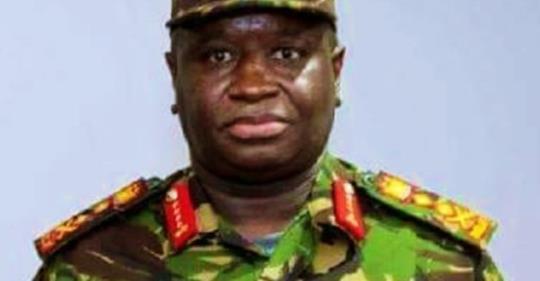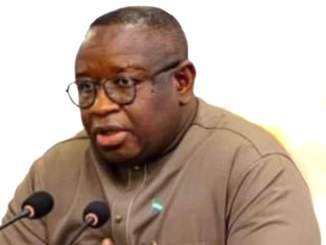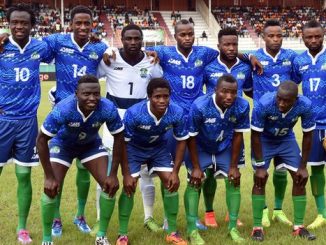
By Alusine Sesay
I had decided not to say a word on several issues pertaining President Bio’s New Direction administration, but my Voltaire kind of thinking could not allow me to stay aloof. If history could prove me right, Voltaire, a French Philosopher, was one of the enlightenment thinkers who first defended free speech. Throughout his life, Voltaire would always remarked that, “I disagree with what you say, but I will defend to the death your right to say it.”
This article will not attempt to delve into the achievement (s) of the New Direction administration of President Bio within his one hundred days and above in governance, but rather focus on certain governance issues – free speech and freedom of association – as enshrined in many international human rights protocols and the country’s 1991 Constitution.
In their recent report on police impunity, Amnesty International noted that the Sierra Leone People’s Party, which had claimed for years whilst in opposition that it was a victim of repressive laws and policing, now has a chance to effect change whilst in government.
The human rights organisation called on the new government to overhaul a repressive legal framework that is out of step with the country’s obligations under international human rights law.
“The new government of Sierra Leone must start fulfilling its promises to improve the human rights situation in the country by lifting restrictions on peaceful demonstrations and ending entrenched impunity for police killings of protesters. The authorities must ensure and promote the right of individuals to peacefully assemble without fear for their safety. Sierra Leone’s new government has a key opportunity to implement reforms that would help the police manage demonstrations effectively and safely, restore the public’s trust in the security forces and live up to the police’s own motto – A Force for Good.”
While in opposition, the Sierra Leone Peoples Party prided itself as a party that upholds democratic tenets and they still continue to boast about it while in governance. They vehemently opposed whatever move by the police to trample on the right of people – a right move then. They also vehemently opposed the use of the obnoxious Public Order Act of 1965, which provides among other things that, people should obtain permission from the police before staging a protest for whatever they may be aggrieved of. And by all indications, that law is not applicable in nowadays democracy. In 2016, the SLPP disobeyed the application of the Public Order Act by the police and processed with their ‘Arie Wuteteh’ masquerade on Independence Day. They openly challenged the police and allegedly vandalised some government vehicles and properties. The party then accused the police of being biased because they had allowed other masquerades out on the street on that day while they prevented them from doing same. The police on the other hand had argued that the party submitted a late application for clearance and also refused to meet with the police hierarchy when summoned, hence took the law into their own hands. Over 30 party supporters, including the then National Women’s Leader, Lulu Sheriff, were arrested and charged to court for various offences, albeit they were later released on bail.
It is obvious that no level headed individual would tell you that the police were right to have prevented the SLPP from celebrating independence with their ‘Arie Wuteteh’ masquerade. The argument that the party applied for clearance late sounds vague and unfounded because one cannot use a bad law to apply selective justice. We all agree that it was a selective justice applied by the police then and the SLPP made a lot of noise about it. In a press release issued on May 3rd 2016, the SLPP claimed that the police had planned to arrest other senior party executive members, thus calling on the international community to intervene.
“We would like to draw the attention of the International Community and the Government of Sierra Leone to let the Police understand that they are Public Officers charged with the constitutional responsibility of keeping the peace in the country and therefore should not do anything inconsistent with such mandate,” they had said in a statement.
Many supporters of the party then referred to the Sierra Leone Police as ‘APC Police.’ quiet recently, a close friend of mine and an ardent SLPP supporter who used to vilify the police and called them names confessed to me that, ‘You know what Alusine, I will no longer criticise the police. I now realised that they serve the government of the day’. His remark must have emanated from the fact that a lot has been done against the opposition after the election of President Bio, which the police have done little or nothing about. I would not delve into the post-election violence that displaced hundreds of opposition supporters in Kono district, but recent developments clearly exposed the continuous biases of the police. The Mayor of the Freetown City Council has been attacked twice and the police are yet to arrest anyone. Some have said nothing would come out of that because she belongs to the main opposition All People’s Congress – the party that had been accused by the now ruling SLPP of excessive human rights violations while in governance for the past ten years. Possibly, their inaction could be linked to the fact that they are trying to prove their loyalty to the new powers that be since they have long been accused by the SLPP of bias. You need not be a rocket scientist to read the handwriting on the wall.
What saddens most observers is that immediately after the release of the Amnesty report of 2018, the police, under the watch of President Bio’s New Direction government, has done things which right thinkers could best describe as violation of human rights. The arrest of Edmond Abu of Native Consortium and Research Centre, the invitation of an opposition politician, Kamarainba Mansaray, to the Criminal Investigations Department, the obnoxious police press release trying to mute people, and the arrest of Karamoh Kabbah after appearing as panelist on Radio Democracy’s ‘Gud Morning Salone’ programme, constitute a minus to the democratic credentials the SLPP has been boasting about. Whichever way one looks at things, those actions of the police are utterly undemocratic and it would be difficult for the government to convince the public that the police are acting on their own. Who said the police are independent? Don’t tell me that because I would take it with a pinch of salt.
Interestingly, the law which had been referred to as a bad law by the SLPP while opposition is now being defended by government agents, including the Minister of Information and Communications and Deputy Minister of Internal Affairs. For them, people should responsibly exercise freedom of speech and assembly according to established law – the 1965 Public Order Act. I agree though, but why now? The SLPP is on record for opposing things that they are now doing and such was largely referenced by Amnesty International in their 2018 report. The nomenclature ‘NEW DIRECTION’, to me, makes no difference to the rule of the APC. Instead of following a fresh path to democracy, the New Direction of President Bio, if I could lend a word from many observers, is rather perfecting the wrongs of the APC. No difference! How do you continue to cite the bad deeds of the previous administration to justify your wrongs? No way! People voted the APC out for such ‘goodies’ and you should expect the same to happen to you if you continue in that light. You were voted not to open up a Pandora’s Box but to fix the problems of the country and that is exactly what you should focus on.
The New Direction, to many observers, is largely not getting things right because they are still living in their past and easily being hoodwinked into doing things out of the way. The police under the New Direction are no different from the one under the previous regime. The same story continues.



